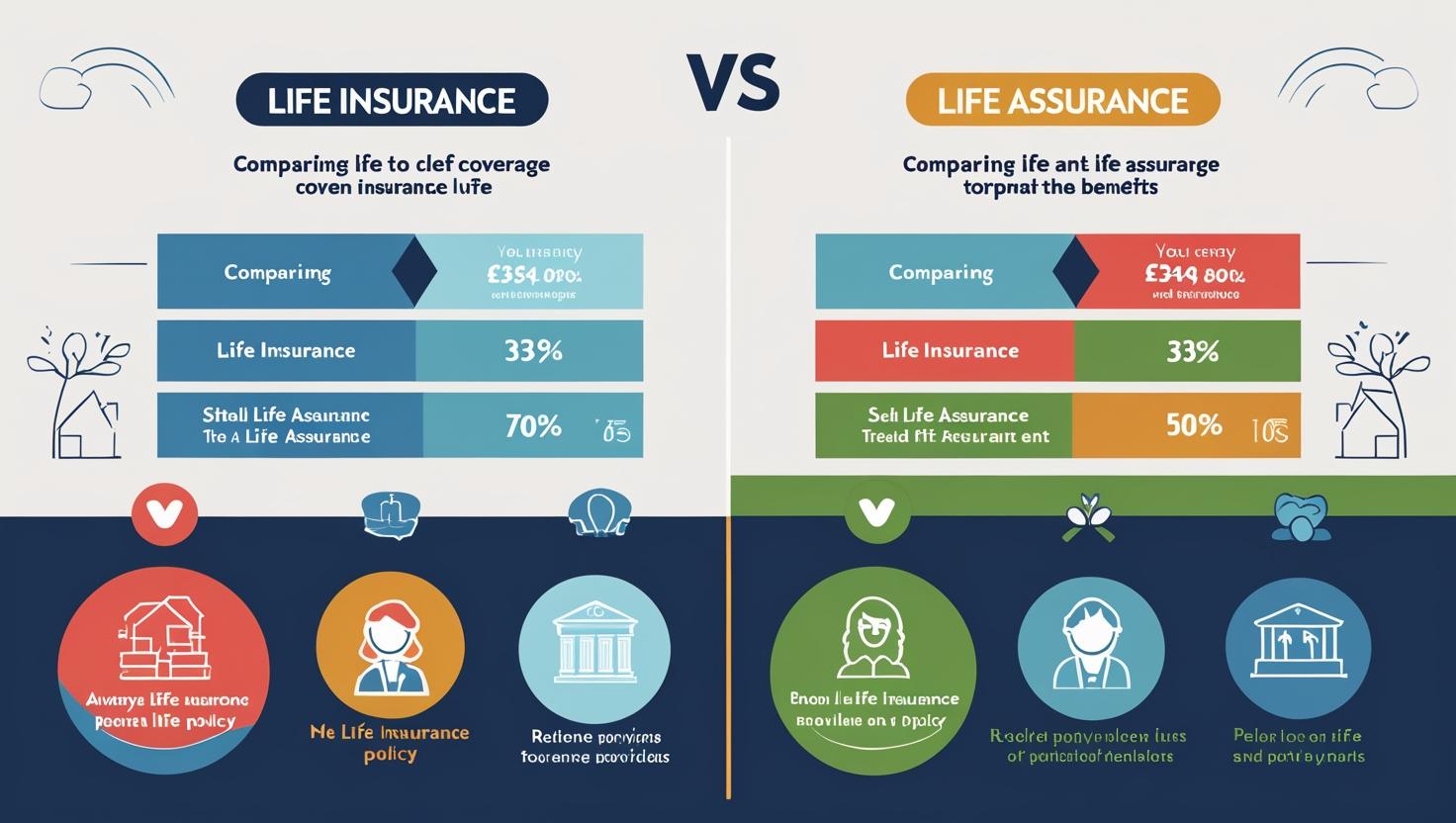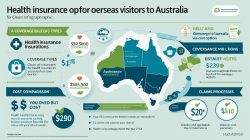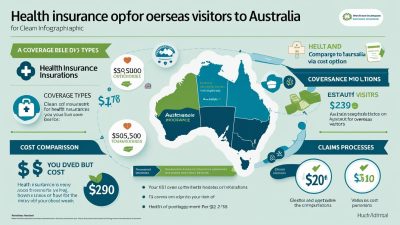Life Insurance Medical Questions Australia: Everything You Need to Know
Bloggerbanyumas.com – Life Insurance Medical Questions Australia When it comes to securing life insurance, one of the most crucial steps in the process is understanding the medical questions asked by insurers. In Australia, life insurance policies often require individuals to disclose their health history, lifestyle, and any pre-existing medical conditions. These medical questions can have a significant impact on the cost of premiums and the type of coverage you receive.

For Australians, knowing how to approach these questions can be the key to obtaining the right life insurance policy without paying unnecessary premiums or facing rejections. As we move further into 2025, understanding life insurance medical questions is more important than ever, as insurers are becoming increasingly sophisticated in their underwriting processes.
In this comprehensive guide, we will explore everything you need to know about life insurance medical questions in Australia, how they affect your premiums, and how to ensure that you answer these questions accurately and effectively.
The Importance of Life Insurance Medical Questions in Australia
In Australia, life insurance providers utilize medical questionnaires to assess the risk associated with insuring an individual. These medical questions help insurers determine the likelihood of a policyholder making a claim, which in turn influences the premiums they charge. Insurers need to understand the applicant’s health history to assess the level of risk and determine if they are eligible for coverage.
While it may seem intrusive, life insurance medical questions are necessary to ensure that the insurer is taking on a manageable level of risk. For individuals with pre-existing conditions or high-risk factors, the insurer may charge higher premiums, exclude certain conditions, or offer limited coverage options.
Accurate and honest answers to these medical questions are crucial. Failing to disclose relevant information, or providing false answers, can result in the policy being voided, claims being denied, or penalties applied in the future.
Common Medical Questions Asked by Life Insurance Providers in Australia
When applying for life insurance in Australia, you can expect to encounter a range of medical questions that are designed to assess your health and lifestyle. Below are the common questions asked by insurers and what they typically cover:
1. General Health and Medical History
One of the first questions insurers will ask revolves around your general health and medical history. This includes:
- Current health status: Insurers want to know if you are currently healthy or suffering from any illness or medical conditions. They will ask if you have been diagnosed with any chronic conditions such as diabetes, heart disease, or asthma.
- Previous medical treatments or surgeries: You may be asked about past surgeries or treatments that could impact your health.
- Family medical history: Insurers often inquire about the medical history of your immediate family, such as parents or siblings, to assess the risk of hereditary conditions.
These questions help insurers assess your overall health risk. If you have a family history of heart disease or cancer, for example, it may affect the premiums you pay.
2. Pre-existing Conditions
Pre-existing conditions are one of the most important factors life insurers consider when determining eligibility and premiums. Pre-existing conditions can include:
- Heart conditions: Such as previous heart attacks, strokes, or high blood pressure.
- Cancer: Whether you’ve been diagnosed with cancer in the past or have a history of cancer in your family.
- Mental health: Including conditions like depression, anxiety, or bipolar disorder.
- Diabetes: Both Type 1 and Type 2 diabetes are typically considered when calculating premiums.
If you have a pre-existing condition, insurers may charge you higher premiums, offer limited coverage, or exclude that condition from your policy. However, it’s important to be transparent with your insurer, as failing to disclose such conditions can lead to the policy being voided.
3. Lifestyle Choices and Habits
Insurers will also ask about your lifestyle choices, as these can have a significant impact on your overall health and risk factors. Key lifestyle-related questions include:
- Smoking habits: Whether you smoke or have smoked in the past, and how long you’ve been smoking. Smoking significantly increases health risks and can lead to higher premiums.
- Alcohol consumption: How often you drink alcohol and the amount consumed. Excessive alcohol use can lead to higher premiums and exclusions.
- Exercise and diet: Insurers may ask about your exercise habits, diet, and general physical activity to assess your health risks.
These lifestyle factors can directly impact your life insurance premium. If you are a smoker, for example, you can expect to pay significantly higher premiums than a non-smoker. Insurers may also offer discounts for those who maintain a healthy weight, exercise regularly, or follow a balanced diet.
4. Mental Health and Psychological History
Mental health is becoming an increasingly important consideration for insurers. Life insurance providers in Australia are now more likely to ask about psychological conditions, including:
- Anxiety, depression, or stress: Insurers may ask if you have been diagnosed with any mental health conditions or have a history of mental health issues.
- Treatment or therapy: If you’ve ever sought treatment or therapy for mental health conditions, this may be factored into the insurer’s assessment.
- Medication: Some insurers will ask whether you are currently on any medication to manage mental health conditions.
While mental health questions may seem invasive, they are becoming a more common part of the life insurance application process. It is important to be honest about your mental health, as failure to disclose relevant information could result in your claim being denied.
5. Occupation and Hobbies
Your occupation and hobbies can also affect your life insurance application. Insurers will want to know:
- Your occupation: Certain high-risk jobs, such as construction workers or airline pilots, may be seen as more dangerous by life insurers and could lead to higher premiums.
- Dangerous hobbies: If you engage in high-risk activities such as skydiving, scuba diving, or motor racing, you may be asked to provide more information about these activities. In some cases, insurers may exclude certain risks or charge higher premiums for coverage.
Understanding the risks associated with your job or hobbies is important for insurers to calculate the risk and set appropriate premiums. Some insurers may even offer discounts for low-risk occupations, such as office-based work.
6. Height, Weight, and Medical Tests
Insurers may also ask for details regarding your height and weight to assess your risk. In some cases, if your BMI (Body Mass Index) is outside the standard range, insurers may ask for more information or require medical tests. Additional medical tests might include:
- Blood pressure measurements
- Cholesterol levels
- Blood sugar levels
- Urine tests
These tests help insurers assess any underlying health conditions, such as diabetes or high blood pressure, which could impact your premiums.
How Life Insurance Medical Questions Affect Premiums in Australia
The answers you provide to life insurance medical questions will directly impact the cost of your premiums. Insurers use this information to assess the level of risk involved in insuring you, and the higher the risk, the higher the premiums. Several factors can influence how much you pay for life insurance, including:
1. Pre-existing Health Conditions
Individuals with pre-existing health conditions may face higher premiums because these conditions increase the risk for the insurer. For example, if you have a history of heart disease, diabetes, or cancer, insurers may charge you more to cover the increased risk.
2. Lifestyle Choices
Lifestyle choices such as smoking or excessive alcohol consumption can result in higher premiums. Smokers, in particular, often pay significantly higher premiums due to the increased risk of lung disease, heart disease, and other health conditions associated with smoking.
3. Age and Gender
Age and gender are additional factors that affect premiums. Younger applicants generally pay lower premiums because they are seen as less risky. Additionally, gender can influence premiums, as women tend to live longer than men, resulting in lower life insurance premiums for women.
4. Occupation and Hobbies
High-risk occupations or hobbies can lead to higher premiums or exclusions for certain activities. Insurers may view high-risk professions or activities as a potential threat to your life expectancy, resulting in higher costs to insure you.
5. Medical History and Tests
If your medical tests reveal high blood pressure, high cholesterol, or other potential health risks, insurers may increase your premiums to reflect the increased likelihood of a claim.
How to Prepare for Life Insurance Medical Questions
To ensure you provide accurate and comprehensive answers to life insurance medical questions, follow these steps:
- Review your health history: Take note of any medical conditions, surgeries, or treatments you’ve had in the past, as well as any medications you currently take.
- Be honest: It’s crucial to provide truthful answers. Omitting or falsifying information could result in your policy being voided.
- Prepare documentation: If you have any pre-existing conditions or have recently been treated for a medical issue, have medical records or reports ready to provide to your insurer.
- Consider a medical exam: Some insurers may require a medical exam as part of the underwriting process. Be prepared for this possibility, especially if you are applying for a large sum of coverage.
Conclusion
Life insurance medical questions are an integral part of the underwriting process in Australia. They help insurers assess the risks associated with insuring you and determine the appropriate premiums for your coverage. By understanding the types of medical questions insurers ask and how they impact your premiums, you can better prepare for the application process and secure the coverage that best fits your needs. Always be honest, transparent, and proactive when answering life insurance medical questions to ensure that you receive the right policy and avoid complications in the future.
FAQs
- What medical conditions affect life insurance premiums?
- Conditions like heart disease, cancer, diabetes, and mental health disorders may lead to higher premiums.
- Will my lifestyle choices affect my life insurance premiums?
- Yes, smoking, excessive alcohol consumption, and lack of exercise can result in higher premiums.
- How does my occupation affect life insurance premiums?
- High-risk occupations, such as those in construction or aviation, may result in higher premiums due to the increased risk.
- What happens if I don’t disclose a pre-existing condition?
- Failing to disclose a pre-existing condition can result in your policy being voided and any claims being denied.
- Do I need a medical exam for life insurance?
- Depending on the coverage amount and insurer, you may be required to undergo a medical exam.
- Can I get life insurance with a mental health condition?
- Yes, but mental health conditions can impact premiums. Be sure to provide accurate information to your insurer.












